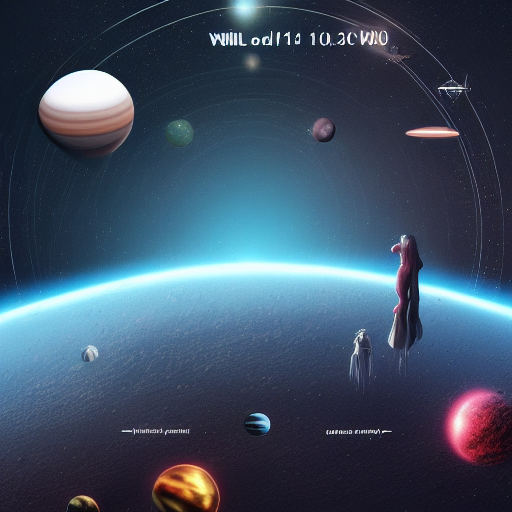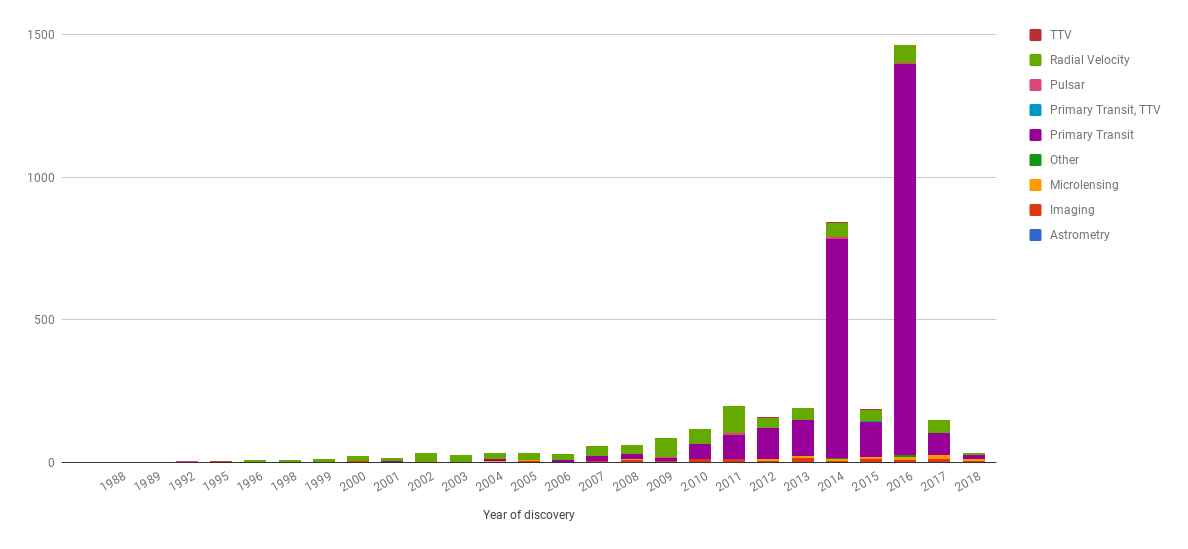
🏅 Top traders
| # | Trader | Total profit |
|---|---|---|
| 1 | Ṁ338 | |
| 2 | Ṁ333 | |
| 3 | Ṁ79 | |
| 4 | Ṁ74 | |
| 5 | Ṁ41 |
People are also trading

The vast majority of the ~5000 exoplanets discoveries to date were made using the transit method, specifically by the Kepler space telescope. But the telescope ran out of fuel and was permanently shut down in 2018. There is another transit-method space telescope, TESS, which is currently operational, but it has found only 268 confirmed exoplanets in its first four years of operation: https://en.wikipedia.org/wiki/Transiting_Exoplanet_Survey_Satellite (The TESS mission seems to have been optimized for finding nearby exoplanets, rather than just huge raw numbers of distant exoplanets a la Kepler.)
The next exoplanet-hunting telescope, PLATO, will not launch until at least 2026: https://en.wikipedia.org/wiki/PLATO_(spacecraft)
It's possible that one of the other techniques, like microlensing, suddenly becomes extremely fruitful and manages to find thousands of planets between now and 2026. But the only big new microlensing effort that might have such potential is the WFIRST telescope, which is also not launching until at least 2026: https://en.wikipedia.org/wiki/Nancy_Grace_Roman_Space_Telescope
In general, future exoplanet efforts don't seem to be focused on racking up huge numbers of easy-to-find planets (if we wanted to do "Kepler 2", we could easily do that, but we're not). Instead they are focusing on trying to find especially unique/interesting, or closer-to-our-solar-system, or especially earth-like planets, all of which are harder to detect. And they are focusing on doing more detailed observations of the atmospheres of exoplanets whose existence has already been established.
So, overall I am thinking this one is a no.
@JacksonWagner Sorry everybody, but I have just changed my mind. It turns out that the TESS mission actually does have a backlog of about 5000 "planet candidates", many of which might become confirmed exoplanets over the next 2 years or so of its mission:
- https://exoplanetarchive.ipac.caltech.edu/docs/counts_detail.html
- https://arxiv.org/pdf/2202.03656.pdf
Context: 5k exoplanets confirmed as of March 2022
https://exoplanets.nasa.gov/news/1702/cosmic-milestone-nasa-confirms-5000-exoplanets/
